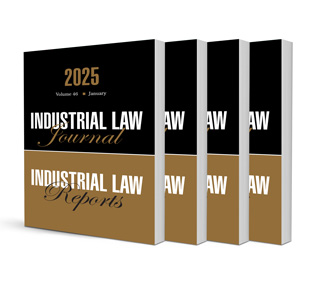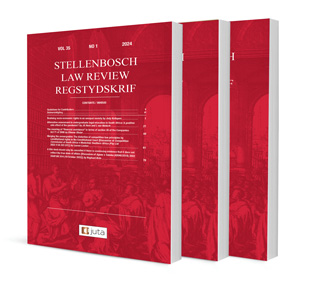An Arbitrary Ground — 10 Years On

An Arbitrary Ground — 10 Years On
Author Talita Laubscher
ISSN: 2413-9874
Affiliations: Partner, Bowmans; B Iur (Free State), LLB (Free State), LLM (Emory USA)
Source: Industrial Law Journal, Volume 46 Issue 2, 2025, p. 818 – 846
https://doi.org/10.47348/ILJ/v46/i2a6
Abstract
The Employment Equity Act 55 of 1998 gives effect to the constitutional right to equality where an employment relationship exists. Section 6, containing the prohibition on unfair discrimination, was amended in August 2014. An important addition was the inclusion of the phrase ‘or on any other arbitrary ground’. This article examines the meaning of an arbitrary ground, particularly in the context of s 6(4) equal treatment cases. Interestingly, in the majority of these cases, the differentiation was introduced by a collective agreement and in none of these did the applicants seek to set the agreements aside. While a collective agreement per se is not a defence to an unfair discrimination claim, differentiation introduced by collective agreements must be carefully considered, because the grounds for discrimination in these instances are most often apparently neutral grounds. These would not support direct discrimination claims, but they may give rise to those that are indirect. These claims are evidence intensive and stereotypes do not assist claimants. Outside the equal pay context, an arbitrary ground has been found to exist in the form of overly broad workplace rules infringing an employee’s constitutional rights.
